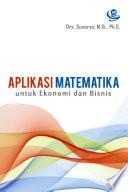
Pendidikan Agama Islam dan Budi Pekerti untuk SMP/MTs Kelas 8
Pada tahun 2013, pemerintah memberlakukan kurikulum 2013 sebagai acuan penyelenggaran sistem pendidikan di sekolah yang ada di Indonesia. Diberlakukannya kurikulum 2013 bertujuan untuk menggantikan kurikulum sebelumnya, yakni kurikulum tingkat satuan pendidikan (KTSP) yang sudah diberlakukan sejak tahun 2006. Pada perjalanannya, kurikulum 2013 mengalami revisi pada tahun 2016. Ada sejumlah perubahan pada kurikulum 2013 revisi 2016 ini. Beberapa poin penting dari kurikulum revisi ini diantaranya menggunakan metode pembelajaran aktif, proses berpikir siswa yang tidak dibatasi, penyederhanaan aspek penilaian siswa oleh guru, meningkatkan hubungan Kompetensi Inti (KI) dan Kompetensi Dasar (KD), serta penerapan teori 5M (mengingat, memahami, menerapkan, menganalisis, dan mencipta). Seiring dengan direvisinya sistem kurikulum 2013, maka setiap mata pelajaran di sekolah pun turut mengalami perubahan, tak terkecuali mata pelajaran Pendidikan Agama Islam dan Budi Pekerti . Buku “Pendidikan Agama Islam dan Budi Pekerti SMP/MTs Kelas 8 Kurikulum 2013 Edisi Revisi 2016” disusun mengacu pada standar kurikulum 2013 revisi 2016. Dalam buku ini, setiap materi disajikan sedemikian rupa sehingga mudah dipahami oleh siswa. Siswa juga diajak untuk lebih aktif dalam proses pembelajaran melalui buku ini. Buku “Pendidikan Agama Islam dan Budi Pekerti SMP/MTs Kelas 8 Kurikulum 2013 Edisi Revisi 2016” dapat dijadikan sebagai rujukan utama mata pelajaran Pendidikan Agama Islam dan Budi Pekerti kelas 8 SMP sederajat yang menggunakan kurikulum 2013 revisi 2016.
- ISBN 13 : 9786022177715
- ISBN 10 : 6022177715
- Judul : Pendidikan Agama Islam dan Budi Pekerti untuk SMP/MTs Kelas 8
- Pengarang : Moh. Suyono,
- Bahasa : id
- Tahun : 2017
- Google Book : http://books.google.co.id/books?id=JIjZzwEACAAJ&dq=intitle:silabus+PAI+SMP&hl=&source=gbs_api
-
Ketersediaan :
Smp/Mts Kl.Viii Pai & Budi Pekerti Kurikulum 2013 Ed 2016









